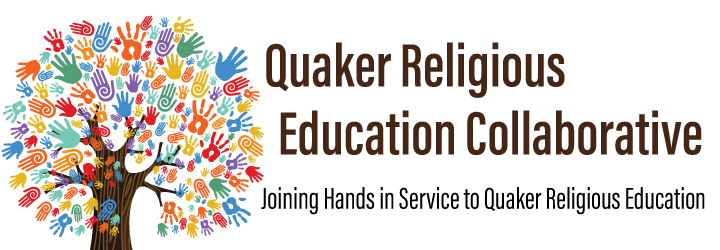September 2020
Dear Friends,
This is an open letter to Friends engaged in youth ministry. We offer it to
the First Day program teachers, the summer camp counselors, the religious
education committee members, the volunteer adult presences, the childcare
providers . . . to the Friends whose work among Friends is with our young
people, from the smallest to the almost-grown.
What’s going on right now is HARD. It’s hard for the children and youth you
serve and care about, but it’s also hard for you. Many young people and
their families are having a rough time; your natural inclination — your
calling — is to help, but you’re restricted in what you can do. In many
places, you can’t go over for a visit, can’t offer a hug, can’t gather for
a chat or playtime, can’t be a listening ear when a kid spontaneously wants
to talk.
On top of all that, this ministry of being in relationship with young
people is also spiritual nourishment for you. At the very same
moment that your gifts and call are needed maybe more than ever, you might
be finding yourself less nourished, less energized, pulled away from your
usual community. Engaging with kids online or by phone call or by letter or
by care package just doesn’t feel the same as being with them in person and
in community, not for them, and not for you.
We see you. This is really, really hard.
Serving as a youth minister has challenges in the best of times. You’re a
teacher, a pastoral-care-giver, an accompanier, and an advocate. Youth
ministry can also sometimes feel like being housed in an annex. We’re
accountable to committees that may be siloed from others with spiritual
formation ministry, we’re set off linguistically (adults and children),
our schedules are on a separate page, and our yearly meeting epistles are
separate documents. This has been more or less functional in Quaker
communities because we’re still visible. Young people are present alongside
the adult community at social hours, at talent nights, at all-ages worship.
But when we’re connected virtually or by phone and by mail, there isn’t the
same opportunity for adults and youth to cross paths and share spaces, and
it’s easy for young people and families to be less present and even absent.
Those of us engaged in youth ministry feel that absence deeply. The loss is
not only for kids and adults who care for them. It’s a loss for the whole community. Communities are less
healthy when they are not multigenerational. But all of our normal ways of
coming together across generations are either impossible right now or
significantly harder, and everyone — kids, families, adults without kids,
and you — is tired.
Here is some of what we have heard from you, and from one another:
“So many of our fun traditions are built around multigenerational
community, and they’re not happening right now..”
“Needs change so fast that I can’t keep up with meeting them. Families don’t even know what they need.”
“Kids sign up for virtual stuff but don’t come.”
“The children I’ve worked with their whole lives are entering middle
school. It’s so hard not to see them every week, see how much they’ve grown.”
“What if our meetings lose the families? What if we never see them
again?”
“I don’t know if the kids are okay.‚”
It would be easy to move here into problem-solving. There are opportunities
to do that. But for now, it seems important to acknowledge the grief of
youth ministers among us.
A year is a long time, especially in the life of a child. Friends engaged
in religious education and youth ministry love the people they serve and
feel a responsibility toward them, and we cannot be with them in the same
ways right now.
This is loss that deserves our acknowledgement and the space to grieve.
We encourage you to find help, support, collaboration. Find other youth
workers and youth ministers. Work in pairs or teams. Ask for help from your
meeting’s ministry and counsel committee. Who holds you and your work? You deserve to be cared for.
We are praying for you, specifically you, that you will be cuddled in God’s
unfailing arms.
In Friendship,
Windy Cooler, Baltimore Yearly Meeting
Windy is a public Friend with a concern for pastoral care to families.
Emily Provance, New York Yearly Meeting
Emily is a public friend with a concern for multiage inclusion in all
Quaker settings.
Melinda Wenner Bradley, Philadelphia Yearly Meeting
Melinda is a public Friend with a concern for nurturing the spiritual lives
of young Friends.
Please share this letter:
PDF of Letter for printing and sharing.




